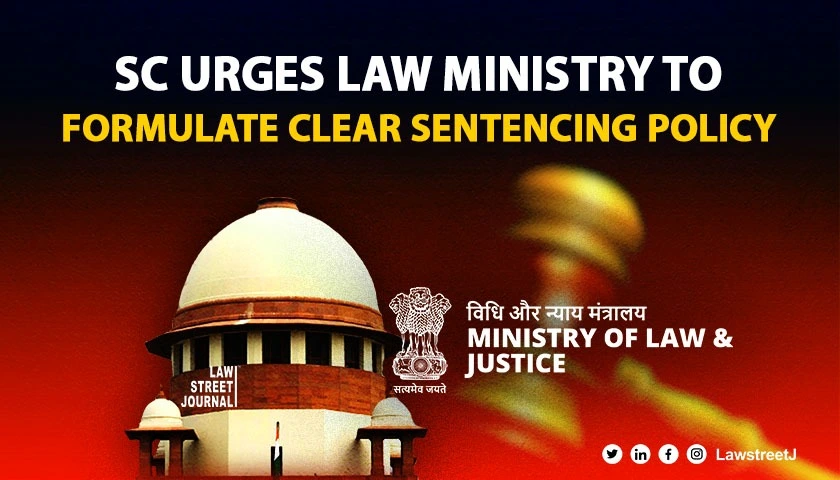NEW DELHI: The Supreme Court has said there is a crying need for a clear sentencing policy, which should never be judge-centric as the society has to know the basis of a sentence.
A bench of Justice M M Sundresh and S V N Bhatti recommended the Department of Justice, Law and Justice Ministry, Union Government, to consider introducing a comprehensive policy, possibly by way of getting an appropriate report from a duly constituted Sentencing Commission consisting of experts in different fields for the purpose of having a distinct sentencing policy.
"Sentencing shall not be a mere lottery. It shall also not be an outcome of a knee-jerk reaction. This is a very important part of the Fundamental Rights conferred under Articles 14 and 21 of the Constitution. Any unwarranted disparity would be against the very concept of a fair trial and, therefore, against justice," the bench observed.
The court noted the issue is an extremely complex one and it is the duty of the States and the Union of India to deal with the situation.
There has to be a conscious discussion and debate over this issue which might require constituting an appropriate Commission on Sentencing consisting of various experts and stakeholders, it said.
"Hearing the accused on sentence is a valuable right conferred on the accused. The real importance lies only with the sentence, as against the conviction. Unfortunately, we do not have a clear policy or legislation when it comes to sentencing. Over the years, it has become judge-centric and there are admitted disparities in awarding a sentence," the bench said.
In its judgment on May 17, the court asked the Law Ministry's Secretary to file an affidavit within six months on the feasibility of introducing a comprehensive sentencing policy and a report thereon.
The bench declined to interfere with the Patna High Court's division bench directing de novo trial in two criminals cases including the one in rape case of a minor girl where in the accused was sentenced to death on January 27, 2022 within days of his arrest on December 12, 2021.
"The judicial officer was obviously acting in utmost haste. It seems to us that the decision was rendered in utmost haste," the bench said.
The court noted the accused was denied due opportunity to defend himself at every stage.
"It would be humanly impossible to deliver the judgment within half an hours time running into 27 pages consisting of 59 paragraphs in the first case and similarly in the other," the bench said.
The bench said various elements such as deterrence, incapacitation and reformation should form part of sentencing.
There is a compelling need for a studied scrutiny of sentencing, to address in particular the reformative aspect, while maintaining equality between different groups. Perhaps, much study is also required on the occurrence of repeat offences, which could be attributable to certain groups. The nexus between particular types of offences and the offenders forming their own groups has to be taken note of and addressed, the bench said.
"The concept of intuitive sentencing is against the rule of law. A judge can never have unrestrictive and unbridled discretion, based upon his conscience formed through his understanding of the society, without there being any guidelines in awarding a sentence. The need for adequate guidelines for exercising sentencing discretion, avoiding unwanted disparity, is of utmost importance," the bench said.

















